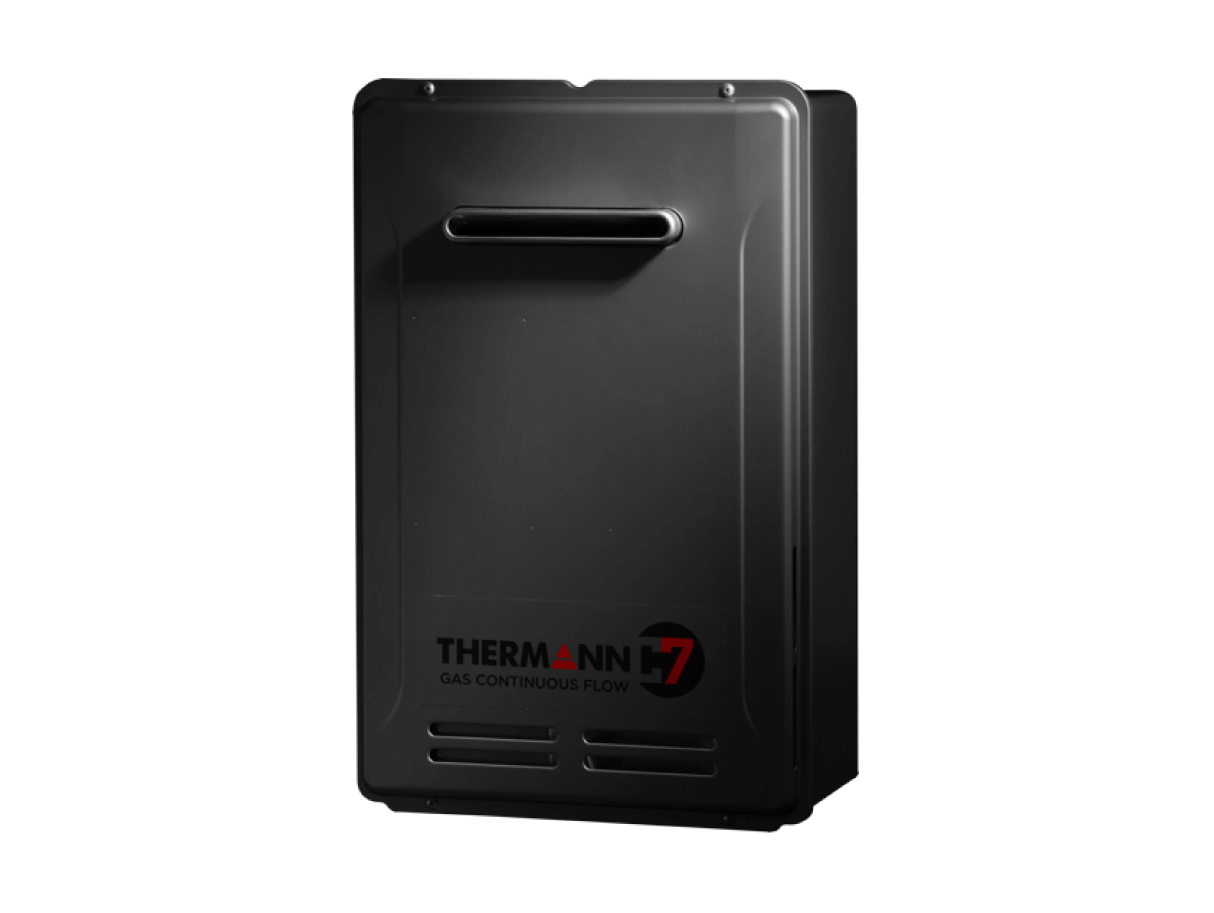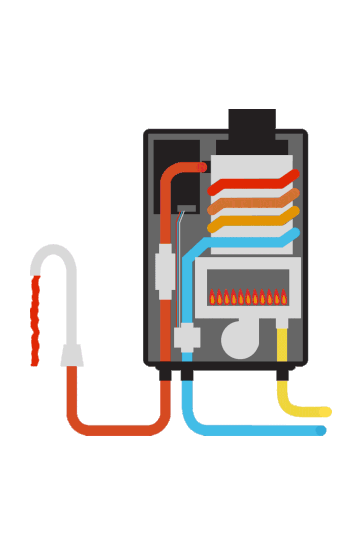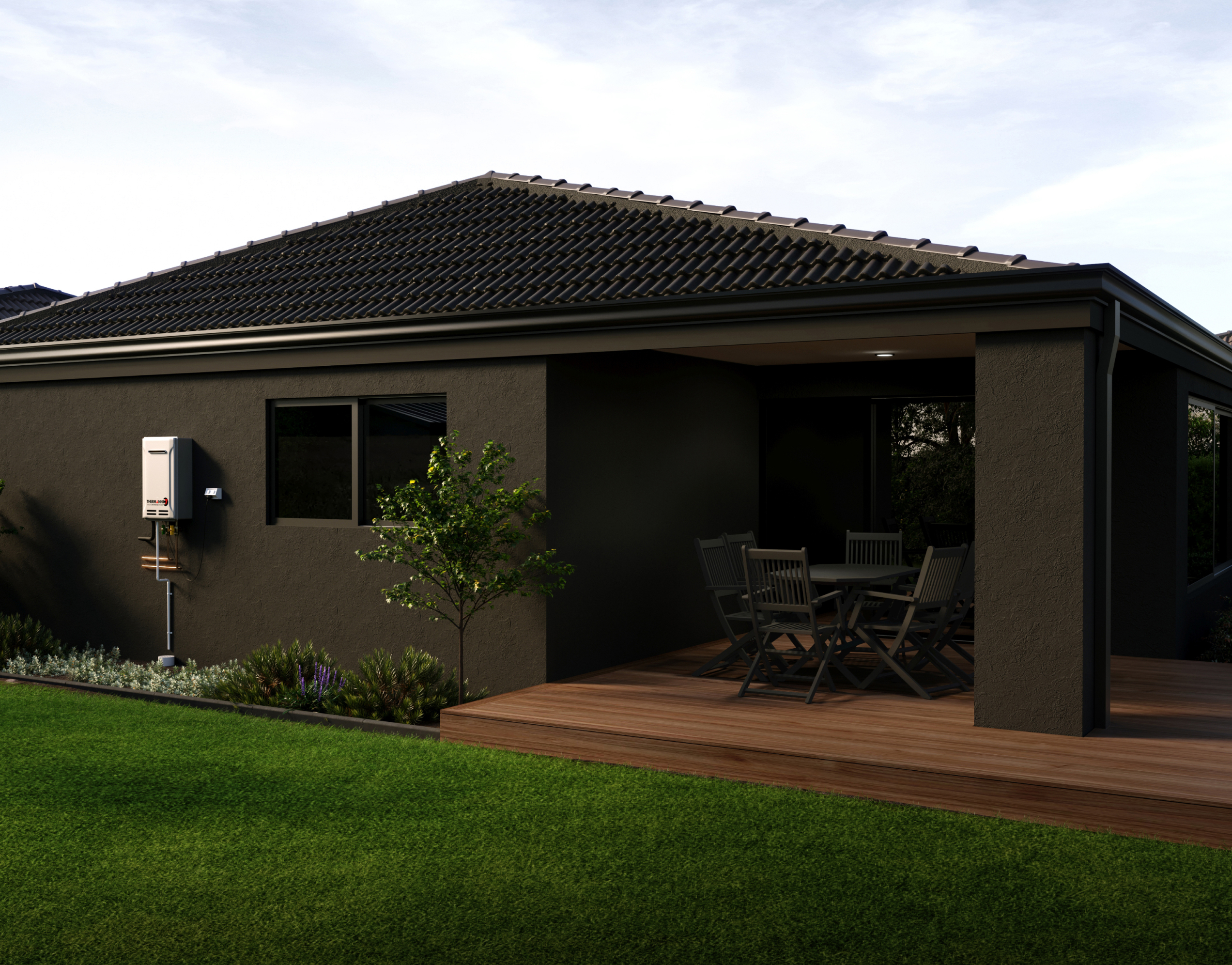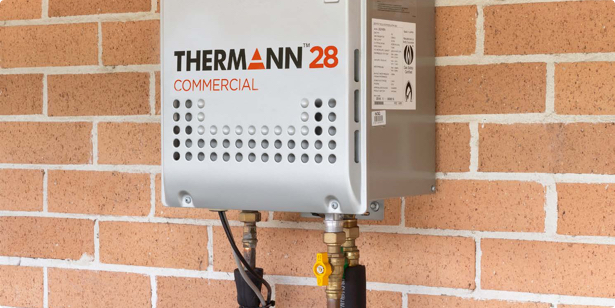
Continuous Flow Hot Water Systems
Gas Continuous Flow hot water systems never run out of hot water which makes them a great choice for even the busiest families. They only heat water as necessary and are a far more energy efficient option.


Gas Continuous Flow hot water systems never run out of hot water which makes them a great choice for even the busiest families. They only heat water as necessary and are a far more energy efficient option.

When a tap in the home is turned on, cold water flows into the
continuous flow system through a pipe at the bottom of the unit.
An inbuilt sensor automatically detects the water flow and then
ignites a gas burner.
The hot exhaust gases from the burner rise up and warm the water
flowing through a heat exchanger. The water is heated to
approximately 50 degrees and then flows out of a pipe at the top
of the unit to the outlet.

Along with being efficient and never running out of hot water,
one of the major advantages of gas continuous flow is their
compact size. These units are generally wall mounted and usually
come out from the wall less than 25cm. This makes them a great
option for properties that have limited outdoor space.
Most gas continuous flow systems offer around 6 star energy
efficiency. The newer condensing technology featured in the
Thermann C7, improves gas efficiency even further by recycling
the exhaust heat to pre heat the water entering the unit. The
Thermann C7 uses around 15% less gas than our 6 star continuous
flow systems.

Gas continuous flow systems tend to be more popular in the
southern states where gas access is widespread. They are less
popular in the northern states where gas supply is limited. LP
gas continuous flow is often used in rural properties that do
not have access to plumbed natural gas. The fact that the
continuous systems use no gas when hot water is not required
also makes them ideal for holiday homes where hot water usage is
intermittent.
If your home doesn't have an existing gas line to the property,
then a gas continuous flow system is probably not the best
option for you.
If your home currently has a gas storage system installed and
your energy bills are high, it may be worth investing a little
more and upgrading to a gas continuous flow system. You may to
need to upgrade your gas line but it could save you money in the
long run.

